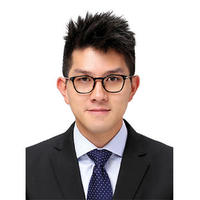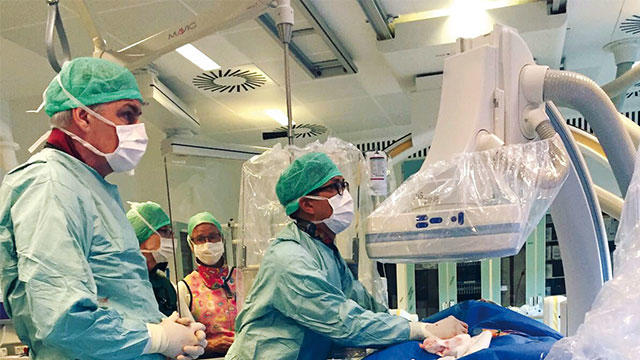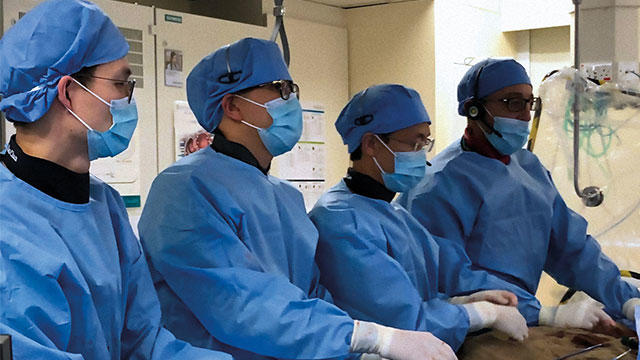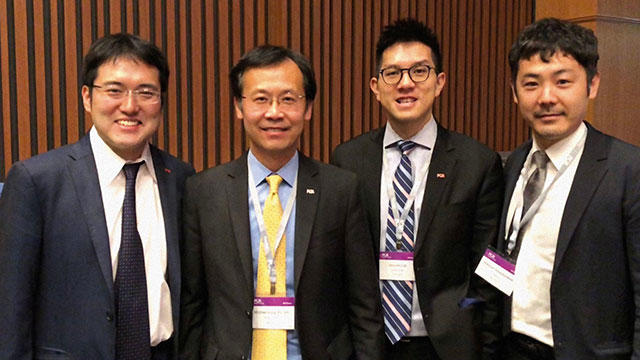Interview with Vincent Luk and his mentors Michael Lee and Lars Sondergaard
Vincent Luk is an interventional cardiologist at Queen Elizabeth Hospital, Hong Kong, where he started his career after graduating in 2005. He went on to also begin his cardiac training there in 2009.

How did you meet your mentors?
Dr Michael Lee was my tutor. He’s a well-known interventional cardiologist in Hong Kong and he taught me all of my basic cardiology skills.
Prof. Lars Søndergaard is Head of Cardiology at Rigshospitalet, Copenhagen where I did my fellowship in structural heart interventions. Working under him, I got hands-on experience in TAVI, LAAO and more.
What makes a good mentor?
A good mentor shares their knowledge, skills and network! But also hands-on training. It was Dr Lee who first guided me in techniques like PCI and structural heart interventions, setting me on a path to proficiency in those and in more advanced procedures.

I was thus immediately operational on the technically advanced team at Rigshospitalet and even participated in international studies there. Prof. Søndergaard also taught by example how to be a good leader, motivating the individuals in his team.
How do your mentor's approaches differ?
Dr Lee is more hands-on, he gives me advice before a task and guides me to enhance my skills further. Prof. Søndergaard’s approach now is more in broader advice, always full of wisdom.
What is the most important piece of advice they have given you?
That you must always think ahead and take the lead. That’s it’s up to us to change and perfect the system, not to just fit in.
Q&A with Michael Lee and Lars Sondergaard
What made you take Vincent Luk on as a fellow?
ML: Vincent cares. He cares about patients and their families, he contributes to educational activities here and abroad and he helps other fellows and nurses. He was recently nominated to join the Asia Young Interventionists Working Group to promote interventional cardiology to younger doctors in Asia.
What do you think is your primary role as a mentor?
ML: To be a positive influence in terms of proactive career development, both by encouraging my mentees’ own initiatives and by facilitating opportunities for them for collaboration, participation in clinical trials etc.

What advice would you offer a fellow starting out?
LS: Work hard to reach your goals! During my 2½ years as a fellow in congenital heart diseases at Great Ormond Street Hospital and The Heart Hospital in London, junior doctors worked very hard to prove their dedication. As a result, they became highly skilled in their clinical practice.
What are your responsibilities to your fellows?
LS: To train them to be independent operators in almost all structural heart interventions. In return, we expect them to contribute to our group’s academic work.
Has being a mentor benefited you?
ML: Yes, mentoring brings us to the next level of our own career development, exposing us to the latest advances in the field and to research opportunities.
LS: Yes, over the years we have had fellows from all over the world. It is a pleasure to see many of them now part of established local programmes for structural heart disease and we even continue to collaborate academically with some of them.



